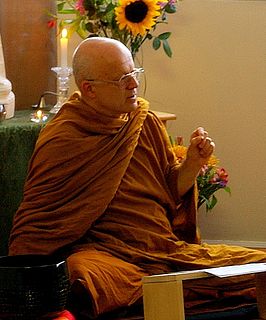A Quote by Stephen Covey
We judge ourselves by our intentions. And others by their actions.
Related Quotes
Most people use two totally different sets of criteria for judging themselves versus others. We tend to judge others according to their actions. It's very cut-and-dried. However, we judge ourselves by our intentions. Even if we do the wrong thing, if we believe our motives were good, we let ourselves off the hook. And we are often willing to do that over and over before requiring ourselves to change.
Listen carefully to me. Despite popular belief to the contrary, there is absolutely no power in intention...There is no difference in the person who intends to do things differently and the one who never thinks about it in the first place. Have you ever considered how often we judge ourselves by out intentions while we judge others by their actions? Yet intention without action is an insult to those who expect the best from you.
Although actions speak louder than words, I believe it is our intentions that reveal our soul. Refrain from judging others based solely on their words and actions, and seek to know their deepest intentions so that you can know who they truly aspire to be, and support them in becoming the best version of themselves.
The teaching on karma starts with the principle that people experience happiness and sorrow based on a combination of their past and present intentions. If we act with unskillful intentions either for ourselves or for others, we’re going to suffer. If we act with skillful intentions, we’ll experience happiness. So if we want to be happy, we have to train our intentions to always be skillful.
The quality of everything we do: our physical actions, our verbal actions, and even our mental actions, depends on our motivation. That's why it's important for us to examine our motivation in our day to day life. If we cultivate respect for others and our motivation is sincere, if we develop a genuine concern for others’ well-being, then all our actions will be positive.




































